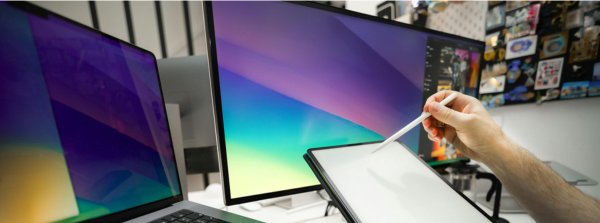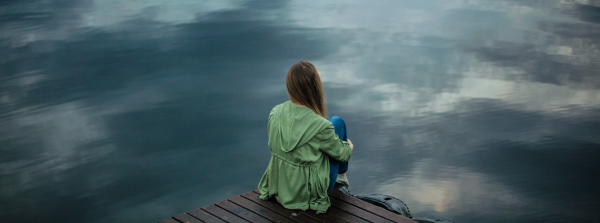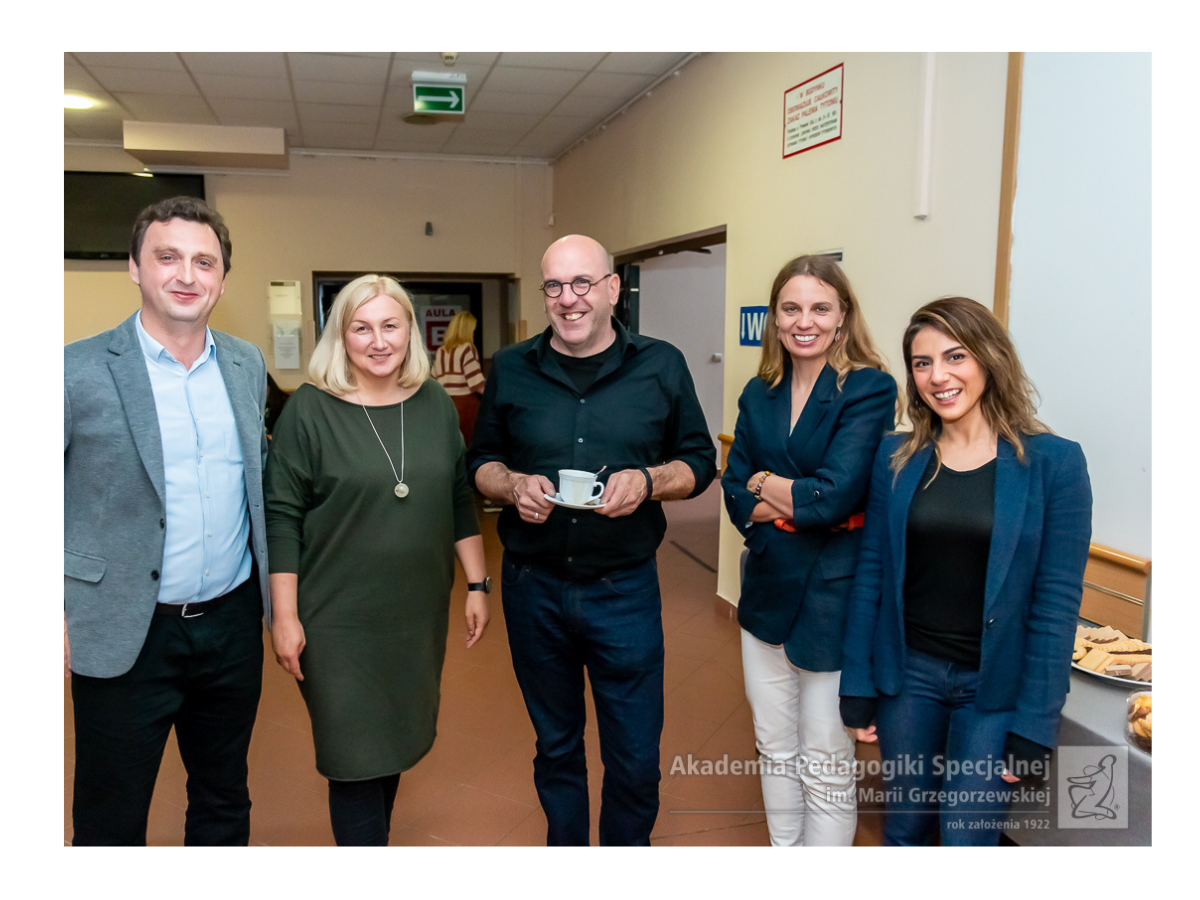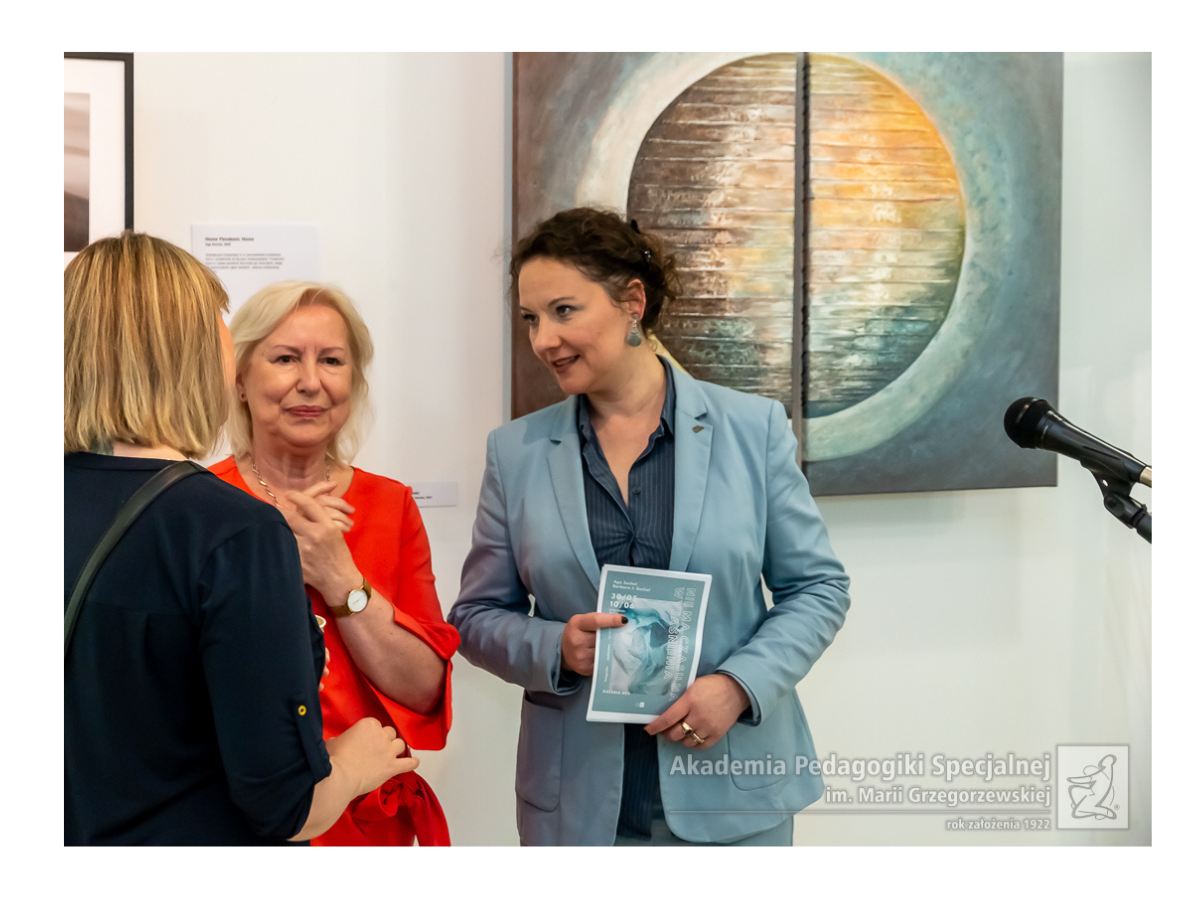This past weekend we launched a scientific and training event from the EDUCATORE project. This project, whose acronym stands for "End of Disaster: Undoing Crisis. Active Tutors Open to Reflective Education" is coordinated by the Maria Grzegorzewska Univeristy, while students and lecturers from Belgium (Ghent), Croatia (Zagreb) and Romania (Oradea) are participating. A total of about 100 people are currently involved in the project.
EDUCATORE aims to reflect jointly with students and academics on the issue of the well-being of education participants during the pandemic and to foster inter-university cooperation. The project will result in recommendations for creating an educational environment for students, pupils and their teachers that positively and sustainably affects their well-being.
Report
Our partners from Croatia, Romania and Belgium have been in Poland since Saturday. On Sunday a group of a dozen students from APS joined them. The international company toured Warsaw according to three previously prepared routes - in the footsteps of Korczak, in the footsteps of Islam and in the footsteps of the People's Republic of Poland. The tours were accompanied by participants of the UNESCO Chair's 15th International Summer School.
Below is Dr. Monika Czyżewska's account of the following project days and the presence of our guests at the Academy.
May 30 - Monday

Project work began on Monday: in nationally mixed groups,
participants considered what barriers, challenges and benefits they have encountered since the beginning of the pandemic in the areas of education and private life.
Visitors will learn about the century-old tradition of our academy, the legacy of Janusz Korczak and the social impact of the academy in terms of social support and implementation of the UN Sustainable Development Goals.
May 31 - Tuesday
The second day began in Auditorium C with presentations prepared in international student teams based on the reflections discussed yesterday. The students shared their experiences and helpful practices that helped them survive the most difficult moments of successive lockdowns. The second part of the class was filled with a practical workshop led by Dr. Marta Smagowicz of the UW on raising mental wellbeing by taking care of your body (Workshop on wellbeing and working with your body in stressful situations).
Before we started practicing, M. Smagowicz told us about Rudolf Laban's method and the resulting so-called labanotation. The first exercise, to which she invited us, began with an intriguing instruction: "touch one hand with the other and slowly explore its landscape...".
Meanwhile, in the foyer in front of auditorium C, the entire morning was taken up with the preparation of an exhibition entitled "There is no time for explanations," which will open to a wider academic audience on June 1, which we will write more about in our next report....
June 1
 The third day of the "Polish week" within the EDUCATORE project is behind us. We began with a lecture by Dr. Tore Sorensen (UJ) on factors supporting teacher well-being. Inspired by the topic, students from Croatia, Belgium, Romania and Poland shared their thoughts. Among other things, we heard about the clash with the very difficult working conditions of young Romanian teachers starting their careers and the prestige of the teaching profession declining year by year in their country, as well as the lack of support of school representatives through unions, which, although numerous, are most often politicized. A voice from Belgium addressed the image of the teacher in society, shaped by the media, where the teaching profession is associated with demands for higher salaries with relatively undemanding (sic!) work. Also raised was the lack of adequate psychological support for those educators who need help in the area of mental health, particularly since the onset of the pandemic.
The third day of the "Polish week" within the EDUCATORE project is behind us. We began with a lecture by Dr. Tore Sorensen (UJ) on factors supporting teacher well-being. Inspired by the topic, students from Croatia, Belgium, Romania and Poland shared their thoughts. Among other things, we heard about the clash with the very difficult working conditions of young Romanian teachers starting their careers and the prestige of the teaching profession declining year by year in their country, as well as the lack of support of school representatives through unions, which, although numerous, are most often politicized. A voice from Belgium addressed the image of the teacher in society, shaped by the media, where the teaching profession is associated with demands for higher salaries with relatively undemanding (sic!) work. Also raised was the lack of adequate psychological support for those educators who need help in the area of mental health, particularly since the onset of the pandemic.
A short break was followed by the formal announcement of a new course of study at APS, "Masters in Children's Rights and Childhood Studies," and this was done by Prof. Darrick Smith, from San Francisco University.

Afterwards, Dr. Kishan Manocha - Senior Adviser on Freedom of Religion or Belief, Organization for Security and Co-operation, Europe Office for Democratic Institutions and Human Rights ODIHR, officially opened the exhibition entitled "Freedom of Religion or Belief. "Can you hear me?" created by Janusz Byszewski, Mariusz Libel and Beata Nessel-Lukasik. The exhibition consists of more than a dozen stands inspired by children's rights, inviting visitors to creatively co-create exhibits. Participants of the EDUCATORE project acted with full commitment within the successive exhibition stands, entering into a dialogue with the exhibition creators. After visiting for over an hour, they talked about their experience of reading new meanings discovered while working with the exhibits. The exhibition, located in the foyer in front of auditorium C, will be on display until Monday, June 6. The official conclusion of the third project day followed two workshops held as parallel sessions: "Discourse Analysis," led by Dr. Tore Sorensen, and "The Implication of Children as Participants in Terrorism: Uche Aguh's Sambisa as a Paradigm," facilitated by Dr. Stephen Okpadah.
June 2

On Thursday, participants of the EDUCATORE project were invited to participate in the first day of the international scientific conference "Discourses of Childhood and Social Education" organized by the Janusz Korczak UNESCO Chair. In the morning plenary session, researchers from San Francisco University, Jagiellonian University, Ghent University, University of New Delhi and Zagreb University presented their papers. The lunch break ended with a poster session, which consisted of papers by students who, over the past days, sought answers to questions about the essence of the well-being of individual participants in educational processes.
The afternoon's parallel sessions provided an opportunity to present a multiplicity of perspectives on the issues that make up the theoretical concepts and practices that have emerged in our societies as we go through the stages of a pandemic. The day ended with a practical workshop on relaxation and spiritual techniques to support the process of keeping the body and spirit in well-being.
June 3

The second day of the scientific conference "Discourses of Childhood and Social Education" was also the penultimate study visit of the EDUCATORE project participants to Poland. The morning plenary session combined extremely moving themes: prof. Ivo Jirasek from University in Zlín, Czech Republic, spoke about the need to awaken spirituality in modern societies, prof. Agnieszka Naumiuk of the UW shared her research experience of working on the life and work history of 19th-century American activist Jane Addams, while Stephen Ogheneruro Okhpadah of the University of Warwick presented the pressing and still unresolved issue of child soldiers exploited by the Nigerian terrorist organization Boko Haram. The morning session ended with a celebration of the 10th anniversary of the scholarly International Journal of Social Pedagogy published by University College London - there was cake, memories and well wishes. After lunch, Prof. Claire Cameron of UCL gave a lecture on active local communities effectively supporting children, and there were 3 online workshop sessions, while the closing ceremony was given by Prof. Kathleen Manion of Royal Roads University in Canada, emphasizing in her lecture the role of children's rights as a catalyst for education and social pedagogy.
 PL
PL








